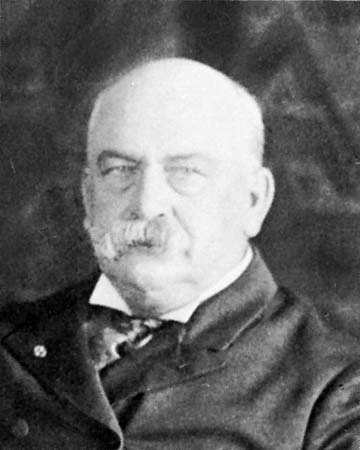Parker, Francis
American educator
in full Francis Wayland Parker
born Oct. 9, 1837, Bedford, N.H., U.S.
died March 2, 1902, Chicago, Ill.
 a founder of progressive elementary education in the United States and organizer of the first parent-teacher group at Chicago.
a founder of progressive elementary education in the United States and organizer of the first parent-teacher group at Chicago.At age 16 he began to teach and five years later became school principal at Carrollton, Ill. (1859). He was commissioned a lieutenant in the Union Army (1861) and rose to the rank of lieutenant colonel. Teaching in various places after the American Civil War, Parker experimented with teaching methods in an attempt to change the rigid formalism prevalent in American schools. In 1872 he went to Germany to study educational methods pioneered by Johann F. Herbart and others.
Returning to the United States (1875), he became school superintendent for Quincy, Mass. He brought science, arts, and crafts into the curriculum and advocated pupil self-expression, socialized activity, and a humanized, informal instruction stressing children's individuality. Children learned the alphabet by reading simple words, rather than by memorization; arithmetic by manipulating objects, rather than by dealing with abstractions; and geography by taking field trips.
After serving as supervisor of the Boston school system (1880–83), Parker was appointed principal of the Cook County Normal School at Chicago, which became noted for its liberalizing influence on American education. In 1899 an endowment made it possible for him to establish a private normal school, the Chicago Institute, which two years later became associated with the University of Chicago on his becoming the first director of the University's School of Education.
- Uhland, Ludwig
- Uhlenbeck, George Eugene
- Uighur
- Uighur language
- Uinta Mountains
- Uintatherium
- Uist
- Uitenhage
- Uitlander
- Uji
- uji
- ujigami
- Ujjain
- Ujung Kulon National Park
- Ukemochi no Kami
- Ukhta
- Ukiah
- ukiyo-e
- Ukko
- Ukraine
- Ukraine, flag of
- Ukrainian Greek Catholic Church
- Ukrainian language
- Ukrainian literature
- Ukrainka, Lesya